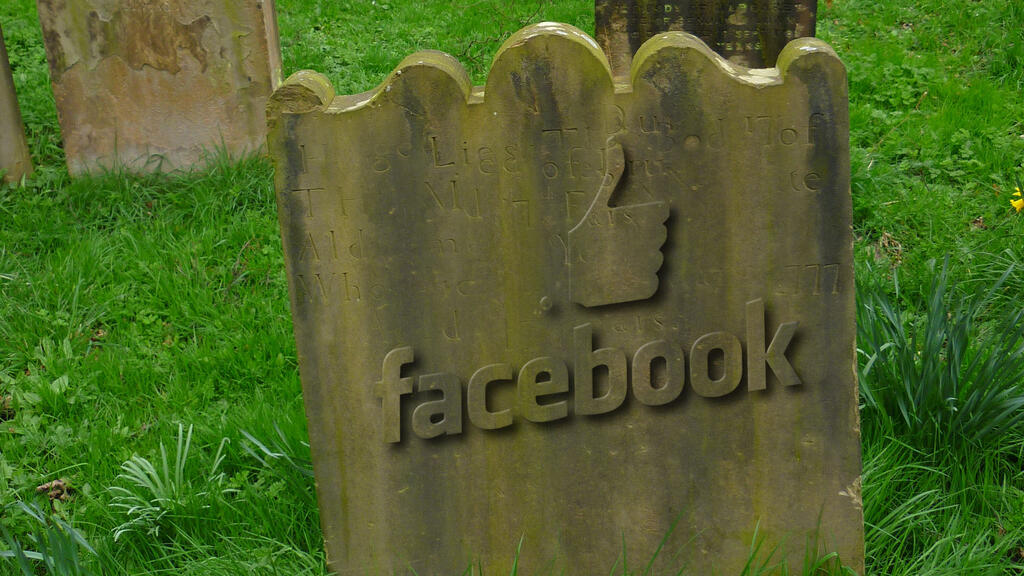The Knesset's Constitution, Law and Justice Committee approved a new bill for its second and third readings in the Knesset on Monday, regulating the inheritance of deceased individuals' digital accounts on social media. This matter gained urgency following the October 7 massacre and the subsequent war, as families seek to memorialize their loved ones who were killed. Often, these are young people without photo albums or letters, but with rich documentation on digital platforms.
The bill draws heavily from research conducted by Dr. Tal Morse of the Department of Photographic Communication and the Department of Politics and Communication at Hadassah Academic College, Jerusalem, and Professor Michael Birnhack from the Faculty of Law at Tel Aviv University.
"Our research, based on a national survey, focus groups and legal analysis, found that awareness of this issue is very low and that each person has different wishes regarding their digital legacy. Therefore, the recommendation is that internet companies first define a posthumous account access policy and, equally important, that individuals specify what should be done with their information on each platform while they are still alive," Dr. Tal Morse explained to Ynet.
Acting Committee Chair and bill sponsor MK Erez Malul (Shas) took the initiative to advance the bill based on insights from the research. The Inheritance Bill (Amendment - Digital Rights Inheritance) aims to require digital platforms, including social media and Google, to establish policies for handling accounts after a user's death, publish these policies, and enable individuals to designate who can access their digital information without needing to go to court. "This is a historic moment. Especially after October 7, we owe this law to the victims and bereaved families to ease their loss, allowing their memories to live on," said MK Malul.
It is worth noting that many online services already have structured policies regarding the inheritance of account access, such as Facebook, which allows users to designate legacy contacts. Additionally, there is a law in the U.S. that regulates this issue at the state level, but many countries still lack such regulations.
"Most countries do not have a similar law. In the U.S., legislation on this issue is state-based, with most states adopting similar laws that establish a hierarchy of various means for leaving instructions (digital directives, instructions in a will, etc.). The European Union is currently working on a proposal for such a law, but it is still in very early stages. Some European countries have partial regulations or court rulings on access possibilities," Morse noted.
Does the law generally address the obligations of various companies, or is it tailored to specific types of platforms (social media, file storage, financial institutions, etc.)?
"Yes. The proposed law defines 'digital content service' as 'an online service primarily intended or used for sharing, distributing, storing or archiving personal content.' The proposed law addresses the obligations of different companies, primarily requiring digital service providers to develop a clear and accessible policy (which did not exist until now). The law does not dictate the policy of each service but leaves it to the companies to establish their own policies. It is important to note that the law does not apply to financial services, as these are considered property and are already regulated under inheritance and will laws. The law also does not apply to personal communication services (such as WhatsApp, emails, and Messenger chats)."
What issues have been observed so far regarding the inheritance of usage rights by family members?
"Until now, the issue has not been regulated at all, and very few people have taken steps to manage access to their digital memories. Since most content used for remembrance and commemoration is now digital (people rarely send letters and postcards, and, except in rare cases, do not keep albums), after a person dies, if there is no access to their digital memories, it becomes difficult to remember and commemorate them.
"The basic desire is to gain access to the personal materials of the deceased, and some families had to hack into devices to achieve this. There were also cases where there was suspicion of suicide, or the family wanted to trace the last hours of the family member before they died, and it was not possible. There were instances where people managed groups or forums where a community had developed, but after their death, there was no access to the materials, and no one to continue managing things.
Moreover, in the absence of a clear and transparent policy, people had to chase service providers, who sometimes improvised policies or did not respond at all (some of these companies are international). The new law requires a policy that is clear and transparent and allows each person to decide for themselves what will happen to their personal information. There is no need for family interpretation or a court to infer the deceased's presumed wishes."
First published: 23:46, 07.09.24



